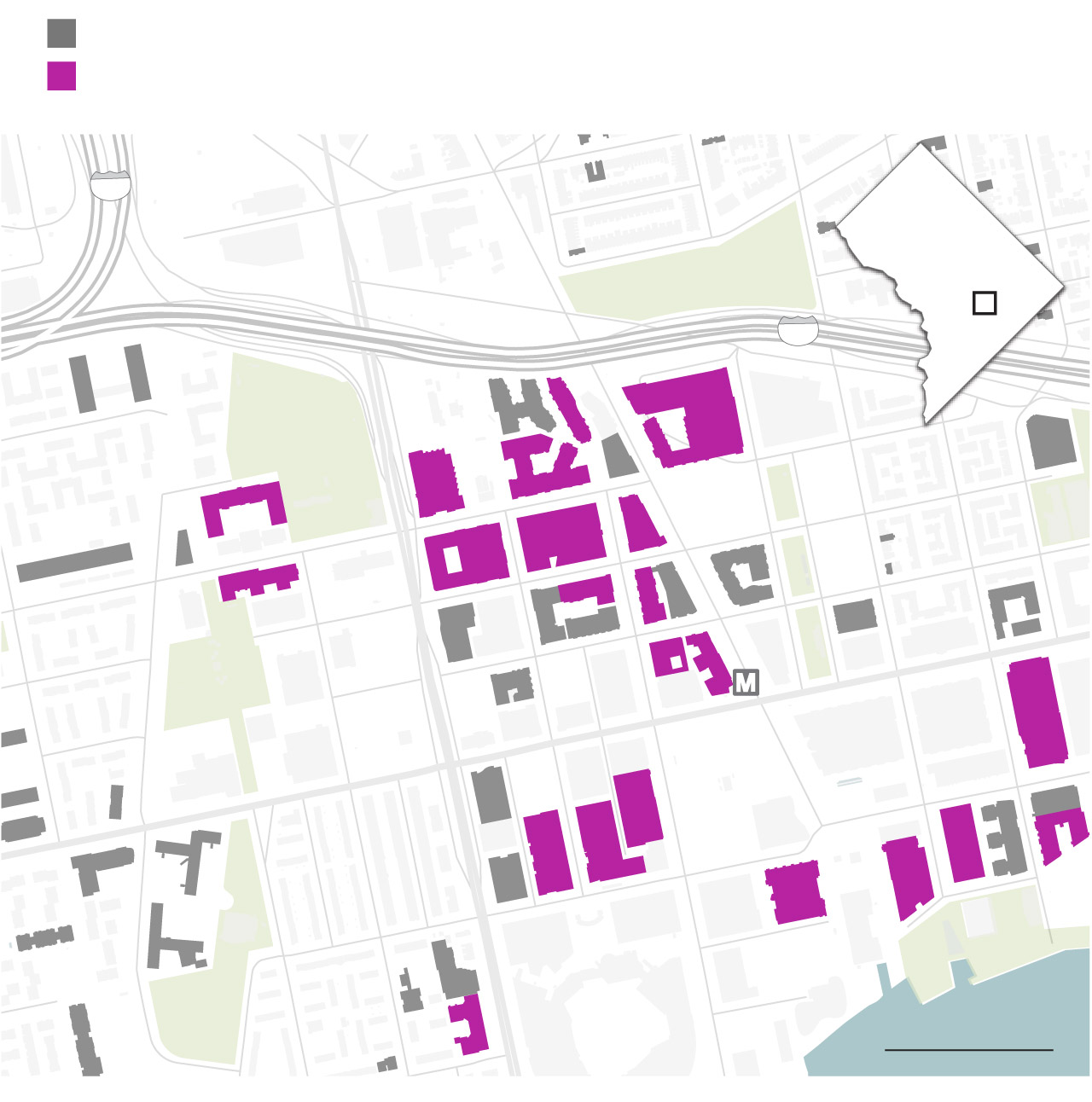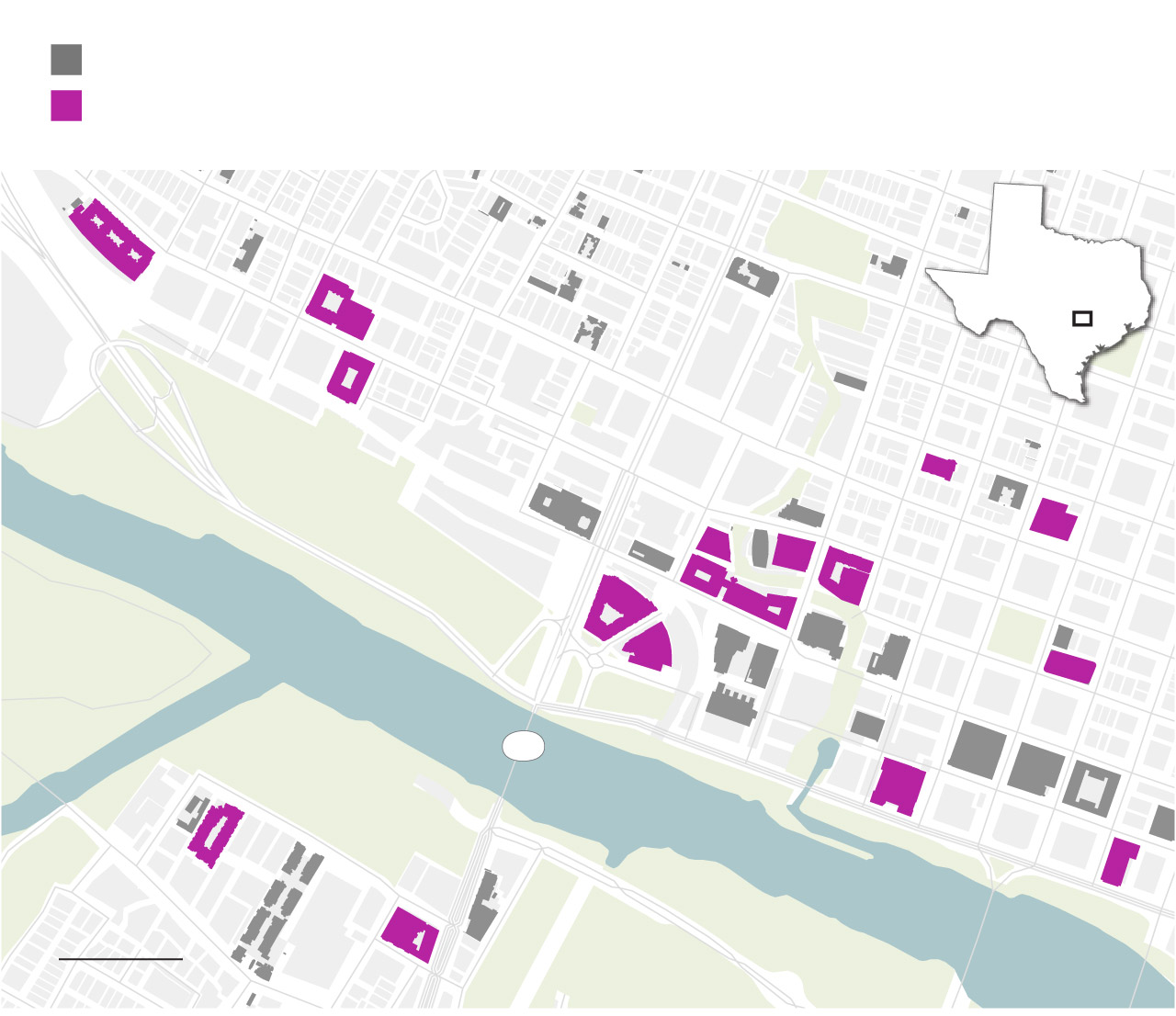God forgive these nickel and dimming hedge funds for ripping off Americans. Let's enforce the antitrust laws without fear or favor, banning "any contract in restraint of trade." From The Washington Post:
Landlords are accused of colluding to raise rents. See where.

Millions of rents across the United States may now be set using one company’s algorithmic software, according to a federal lawsuit and a Washington Post analysis.
RealPage, a property management software company, uses a trove of data to suggest rental prices to landlords. The software has been widely adopted by property managers — and is now facing strenuous legal pushback.
Over the past three years, the company has been sued by the federal government, which alleged in August that it unlawfully decreases competition among landlords; by several individuals; and by the governments of Arizona and D.C., which have accused RealPage and dozens of property management companies of colluding to raise prices.
On Tuesday, the Justice Department expanded its suit to sue six large landlords, which it says operate in 43 states and D.C.
To assess how widespread use of RealPage’s rent software may be, The Post identified 3.1 million market-rate rental units managed by companies named in the lawsuits. That analysis found 10 counties where more than 1 in 3 multifamily units are managed by a property company allegedly using a rent-setting program from RealPage.
See where these buildings are in your city.
Access to competitors’ rental data is at the center of the legal battles against RealPage. The Justice Department alleges landlords provide private rental data to RealPage, which uses its technology to train the company’s pricing algorithm and make suggestions to landlords on what to charge.
“These recommendations are based on the sensitive information of their rivals,” the suit states.
One landlord using RealPage revenue management technology started increasing rents within a week of using the program, raising prices more than 25 percent in 11 months, according to the suit.
In a video on its site, RealPage said it helps properties “exceed the market” by 2 to 5 percent in revenue. But the company has said that its software — the latest version of which is called AI Revenue Management, or AIRM — does not let clients see competitors’ specific rents and that its “price recommendations are based primarily on the subject property’s own internal supply and demand data.”
RealPage said about 600 customers use its revenue management software for more than 4.5 million residential units. RealPage declined to provide their locations, citing customer confidentiality, and said The Post’s map would be “highly inaccurate” without that confidential data.
Among property management companies named in the lawsuits, some have stopped using the software, RealPage said, while others do not use it at all their properties. In court filings, the defendant property management companies have broadly denied allegations of collusion.
The lawsuits indicate that use of RealPage’s software is widespread: They list more than 50 property management companies, including some of the largest in the country, as customers of at least one of three RealPage rent-recommending programs.
Nationwide, the named companies manage at least 12 percent of all multifamily housing units, a Post analysis found, often concentrated in areas that have seen recent building booms. Of units built since 2020, more than 70 percent are managed by alleged clients of RealPage’s rent-setting software.
In the region around D.C., the first government to file suit against RealPage, about 24 percent of multifamily units are managed by companies alleged to have used RealPage’s rent software.
These buildings are often new high-rises chock-full of amenities. In just one square mile of Washington’s Navy Yard neighborhood, for example, where an onslaught of development has sent rents soaring, 22 buildings are managed by companies named in the suits, according to The Post’s analysis.
Rent prices in D.C. increased 1.6 percent from June 2023 to June 2024, and are up more than 10 percent from their pre-pandemic levels.
In its lawsuit, D.C. alleges that RealPage and property management companies used the software to “inflate rents for tens of thousands of apartments across the District, causing District renters to pay millions of dollars they would not have.”
In one case, the D.C. lawsuit alleges, RealPage sent a monthly report in 2022 to property management company WC Smith, stating the company was able to increase revenue per unit by 4.6 percent.
RealPage has disputed that its technology is designed to raise prices, saying it is intended to adjust prices based on supply and demand, and it recommends both price increases and decreases. RealPage also argued that rent increases have been lower in the areas of Maryland and DC where use of its software is more prevalent.
Nationwide, rising rent has been a point of stress, especially since the onset of the pandemic, as housing costs skyrocketed in part due to increased demand and lagging supply.
“Nationally, it’s kind of a perfect storm for tenants right now,” said Brandon Weiss, a professor and senior associate dean at American University’s Washington College of Law.
In December, Harvard’s Joint Center for Housing Studies said the number of cost-burdened renters — people paying more than 30 percent of their incomes on rent and utilities — reached a record high of 22.6 million households in 2023. “[RealPage] very well may be having an impact given the number of units that are under management that are using the software,” Weiss said.
Meanwhile, the White House released in December its own analysis concluding that the use of “anticompetitive” pricing algorithms cost renters an average of $70 a month in buildings using them. (RealPage has disputed the report, saying it is “riddled with flawed assumptions.”)
But the pattern is mixed. In Austin’s metro area, roughly 46 percent of multifamily units are controlled by property companies listed as co-defendants in the RealPage suits, the highest rate in the country. But rents in Travis County, where Austin is, have dropped more than 4 percent in the past year as new buildings have opened their doors. (Rent prices remain nearly 19 percent higher than in 2019.)
Much of the new development has been focused in downtown Austin, where 15 buildings within one square mile are managed by companies named in the suits, according to The Post’s analysis.
That building boom has given Austin renters more power in the market. But the new buildings are often too expensive for lower-income renters, said Heather Way, director of the Housing Policy Clinic at the University of Texas law school. She noted “a very big mismatch with renters and their housing needs.”
Jake Wegmann, an associate professor who studies housing markets at the University of Texas architecture school, said he is skeptical that RealPage is a major factor in driving rent prices up in a complicated housing market with multiple factors at play.
“The main thing this product will do is alert you that prices are going up sooner than maybe if you didn’t have the product,” Wegmann said. “In the pre-RealPage world, eventually the information would reach you that prices are going up.”
RealPage said in a statement that its software “reacts to the market realities; it does not drive them.”
RealPage has asked a federal judge to dismiss the Justice Department’s case, arguing that it is not a monopoly. In a statement, the company said the D.C. and Arizona suits rely on “glaringly obvious false allegations.”In a lengthy defense on its website, RealPage says one of its revenue management softwares, LRO, has separate databases than the other two, YieldStar and AIRM, and does not use “competitor nonpublic lease pricing data” to recommend rents.
RealPage also acknowledges the nation’s housing affordability challenges but says its revenue management software benefits tenants as well as landlords by allowing people to choose between lease lengths.
For Weiss, however, the allegations against RealPage are part of troubling trends in the rental market, including the unprecedented accumulation of rental units by opaque management companies and highly localized housing laws that struggle to protect tenants.
“It all leads to power imbalances between landlords and tenants,” Weiss said.
About this story
Alice Crites, Jinpeng Li, Susie Webb and Kevin Schaul contributed to this report.
The Post identified 52 property management companies named in lawsuits against RealPage in Arizona, Nashville and D.C., and then collected information on multifamily residential properties advertised on each company’s website as of June and July. (Several companies that did not list properties online were excluded from The Post’s analysis.) The Post determined the number of market-rate units at each property using apartments.com data or — for about 1,250 buildings not found in CoStar — through manual research.
Because income-based affordable housing cannot use revenue management software, properties with 100 percent income-based affordable units and property management companies with more than 80 percent of units designated as affordable were excluded from the analysis. The Post identified affordable properties through company websites, apartments.com listings and websites that advertised affordable housing. Properties with a mix of affordable and market-rate housing were treated entirely as market rate.
The Post validated the 20 of the biggest companies’ unit totals — representing 79 percent of the units in the analysis — by comparing them with market-rate unit estimates reported in the National Multifamily Housing Council’s Top 50 Apartment Managers list. Estimates of total U.S. multifamily housing units come from the 2023 one-year estimates of the American Community Survey, which includes vacant and occupied rental units, as well as condominiums, vacation homes and affordable housing.
The Post compared its findings on metropolitan areas with the highest concentration of units managed by companies allegedly using RealPage against the areas listed as the top 10 markets of concern in the Department of Justice’s lawsuit. All 10 metros named in the lawsuit were in the top 11 metros identified by The Post.
In addition to the two affordable housing provider companies, five other companies were excluded from the analysis. One was dismissed from the lawsuit. Post reporters could not find online advertisements for properties managed by Crow Holdings LP, Trammell Crow Residential Co. and CONTI Texas Organization Inc., and First Communities Management Inc. was acquired.
In alphabetical order, the companies included in the final analysis were Allied Orion Group, Air Communities, Avenue 5 Residential, Bell Partners, BH Management Services LLC, Bozzuto Management Co., Brookfield Properties Multifamily, Camden Property Trust, Cortland Management Corp., CH Real Estate Services, CONAM Management Corp., CWS Apartment Homes, Dayrise Residential, ECI Group, Equity Residential Services, Essex Property Trust, FPI Management, Gables Residential Services, Greystar Management Services, Highmark Residential, HSL Properties, Independence Realty Trust, JBG Smith Properties, Kairoi Management, Knightvest Residential, Lantower Luxury Living, Mid-America Apartments, Mission Rock Residential, Morgan Properties Management Co., Paradigm Management, Pinnacle Property Management Services, Prometheus Real Estate Group, Rose Associates, RPM Living, Sares Regis Group, Security Properties Residential, Sherman Associates, Simpson Property Group, the Related Companies, Thrive Communities, UDR Inc., Weidner Property Management, William C. Smith & Co., Willow Bridge Property Co. (formerly Lincoln Property Co.), Windsor Property Management Co. and ZRS Management LLC.
Asked to comment, some of the companies declined while others did not respond. Air Communities, said it no longer uses the software and Pinnacle Property Management Services said it does not decide whether the properties it manages use revenue management services. Cortland said it uses its own internal revenue model to determine pricing.


1 comment:
Thousands homeless because of these corrupt people.
Post a Comment